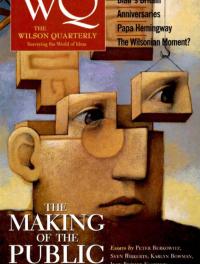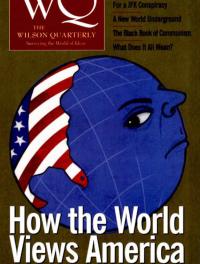INVISIBLE ARMIES:
An Epic History of Guerrilla Warfare From Ancient Times to the Present.
By Max Boot. Liveright. 750 pp. $35
THE SIGNAL AND THE NOISE:
Why So Many Predictions Fail—but Some Don’t.
By Nate Silver. Penguin Press. 534 pp. $27.95
TWO CHEERS FOR ANARCHISM:
Six Easy Pieces on Autonomy, Dignity, and Meaningful Work and Play.
By James C. Scott. Princeton Univ. Press. 169 pp. $24.95
FAR FROM THE TREE:
Parents, Children, and the Search for Identity.
By Andrew Solomon. Scribner. 962 pp. $37.50
TRIUMPHS OF EXPERIENCE:
The Men of the Harvard Grant Study.
By George E. Vaillant. Harvard Univ. Press. 457 pp. $27.95
If Washington seems to get much less done than it once did, it is partly because it is trying to do so much more.
In a process almost unnoticed by the rest of the world, Africa has become significantly more democratic since the early 1990s. Its transition toward political freedom offers both inspiration and cautionary lessons.
Three Afghan women write about violence and shelter, the Taliban, and getting to vote.
Recent history in the countries of the former Soviet Union suggests that the appetite for freedom may not be as strong everywhere as we assume.
One after another, arguments that non-Western countries are not “ready” for democracy have been upended by experience.













